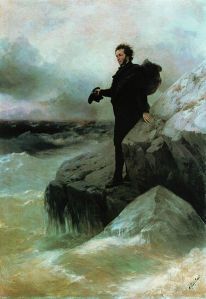President Bush last week designated nearly 200,000 square miles of Pacific islands, reef, waters, and floor as protected, under the century-old federal Antiquities Act. This announcement sent the mainstream press racing for their globes and atlases, and momentarily put oceans at the center of the national conversation. Outlets that cover marine issues intermittently embraced the event, for better or for worse. The New York Times editorial board took this thoughtful stance on the perceived shortcomings of Bush’s move.
More interesting than the news-driven coverage was The Economist‘s Special Report on the Sea, which ran in its Jan. 3 to Jan. 9 issue (Lead story is here, with links to others on the right). It’s rare to see the mainstream press devote such resources to this small corner (okay, 70 percent) of the world. True to form, Economist editors build an arc of logic into the package, opening with exposition about the state of the seas, before sliding into, if not policy prescriptions, commentary on politicians’ ineffectiveness on the issue (From “Saline Solutions“: “Is it too late to save the sea? The solutions to some of its problems are fairly clear, even if it requires political courage to put them in place.”).
A less obvious point lay scattered over the entire 16 pages. Readers of the Economist know that editors commonly save brain space on writing headlines and subheads by ripping forgotten gems out of antiquarian literature. This practice is particularly apt in this oceans package. The articles themselves directly address major, present concerns. The sprinkling of literary references throughout stories and captions has a subtle but powerful effect: Humanity has always lived and thrived by the sea. The ocean is a part of our identity, our history, and, because we eat so much fish, our bodies, too. Here is a list of most of these references, which all in all cover about 2,500 years of cultural history — a fraction of humans history with life by the sea.
“Inestimable stones, unvalu’d jewels”
Richard III
Shakespeare
“The mackerel-crowded seas”
Sailing to Byzantium
William Butler Yeats
“Come, friends, and Plough the Sea”
The Pirates of Penzance
“There goes that Leviathan”
Angling Sketches
Andrew Lang
“Creeping things innumerable”
The Bible (Psalm 104)
What Are the Wild Waves Saying? Song, Stephen Glover
“Unplumb’d, salt, estranging sea”
To Marguerite
Matthew Arnold
“Oh, the shark has pretty fins, dear”
Mack the Knife
The Threepenny Opera, Brecht
“A trout in the milk”
The Writings of Henry David Thoreau
“Fishing up the moon”
The Wise Men of Gotham
Thomas Love Peacock
“Is it for you to ravage seas and land”
The Aeneid




 Posted by Eric Roston
Posted by Eric Roston